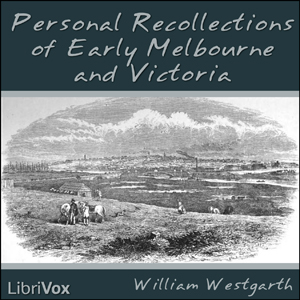- Preface and Author's Prefatory Note
- Introductory Chapter
- I. First Impressions of Korea
- II. First Impressions of the Capital
- III. The Kur-dong
- IV. Seoul, the Korean Mecca
- V. The Sailing of the Sampan
- VI. On the River of Golden Sand
- VII. Views Afloat
- VIII. Natural Beauty - The Rapids
- IX. Korean Marriage Customs
- X. The Korean Pony - Korean Roads and Inns
- XI. Diamond Mountain Monasteries
- XII. Along the Coast - Part 1
- XII. Along the Coast - Part 2
- XIII. Impending War - Excitement at Chemulpo
- XIV. Deported to Manchuria
- XV. A Manchurian Deluge - A Passenger Cart - An Accident
- XVI. Mukden and its Missions
- XVII. Chinese Troops on the March
- XVIII. Nagasaki - Wladivostok
- XIX. Korean Settlers in Siberia
- XX. The Trans-Siberian Railroad
- XXI. The King's Oath - An Audience
- XXII. A Transition Stage
- XXIII. The Assassination of the Queen
- XXIV. Burial Customs
- XXV. Song-do: A Royal City
- XXVI. The Phyong-yang Battlefield
- XXVII. Northward Ho!
- XXVIII. Over the An-kil Yung Pass
- XXIX. Social Position of Women
- XXX. Exorcists and Dancing Women
- XXXI. The Hair-cropping Edict
- XXXII. The Reorganised Korean Government
- XXXIII. Education and Foreign Trade
- XXXIV. Daemonism or Shamanism
- XXXV. Notes on Daemonism Concluded
- XXXVI. Seoul in 1897
- XXXVII. Last Words on Korea
In this book, Isabella L. Bird, who had been elected a Fellow of the Royal Geographical Society only 2 years prior, describes her travels through Korea from 1894 - 1897 in her well-known style. She went on lengthy trips through the interior of what is today both North- and South Korea and vividly describes the landscapes, people and customs of the "Hermit Kingdom".
Isabella's sojourn coincided with a time of great turmoil in Korea. Shortly after her arrival, the Japanese occupied the country, ostensibly to protect their expatriate community. But when relations worsend further, Isabella was forced to flee, first to Manchuria, and, after the outbreak of the first Sino-Japanese War (1894 - 1895), to Russia. She returned to Korea only days after the assassination of Queen Min in October 1895, and saw King Gojong reduced to a mere "salaried automaton" until he fled to the Russian Legation in 1896. Isabella, having had several audiences with the monarchs throughout her stay in Seoul, gives a first hand account of the political and governmental changes throughout this time.
Altogether, this is a fascinating account of Korea at a time when the country was not only torn between tradition and modernisation, but also found herself a pawn of Japan, China, and Russia, all vying for control in the Far East. (Summary by Availle)
Isabella's sojourn coincided with a time of great turmoil in Korea. Shortly after her arrival, the Japanese occupied the country, ostensibly to protect their expatriate community. But when relations worsend further, Isabella was forced to flee, first to Manchuria, and, after the outbreak of the first Sino-Japanese War (1894 - 1895), to Russia. She returned to Korea only days after the assassination of Queen Min in October 1895, and saw King Gojong reduced to a mere "salaried automaton" until he fled to the Russian Legation in 1896. Isabella, having had several audiences with the monarchs throughout her stay in Seoul, gives a first hand account of the political and governmental changes throughout this time.
Altogether, this is a fascinating account of Korea at a time when the country was not only torn between tradition and modernisation, but also found herself a pawn of Japan, China, and Russia, all vying for control in the Far East. (Summary by Availle)
There are no reviews for this eBook.
There are no comments for this eBook.
You must log in to post a comment.
Log in











